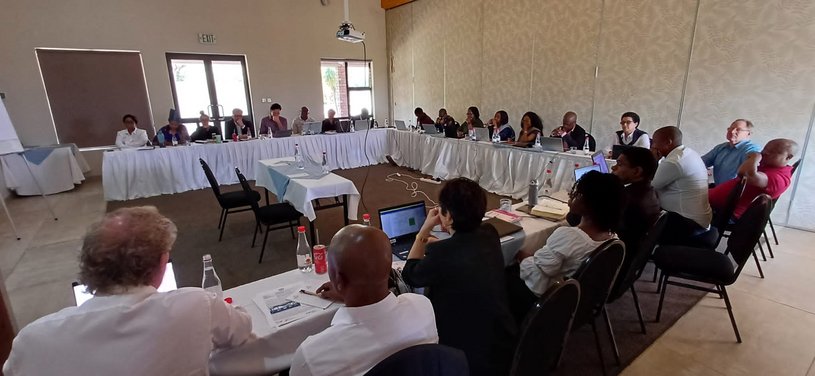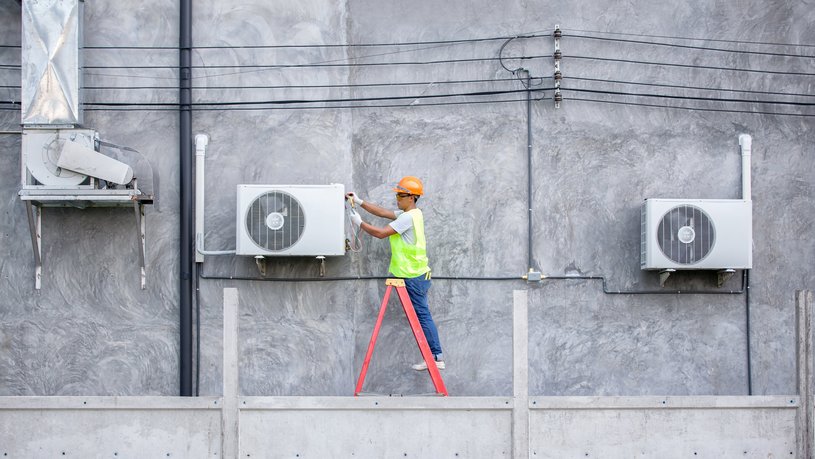On 11 and 12 September 2023 focal points of climate change, ozone and energy departments of national ministries of Botswana, Eswatini, Namibia and South Africa – meaning three focal points per country – met to discuss with GIZ and GFA Consulting Group the status quo and way forward of the Cooling Program for Southern Africa (CooPSA).
It was the first regional workshop held in the context of the CooPSA project after national working group meetings in all four partner countries in 2022 (Botswana, Eswatini, Namibia) and the beginning of 2023 (South Africa). The workshop was hosted by the Government of Botswana.
The Cooling Program for Southern Africa (CooPSA (opens in a new window)) is funded by the Federal Ministry of Economic Affairs and Climate Action (BMWK) of Germany. It is conceived as Article 6 of the Paris Agreement Pilot Project and aims to facilitate direct and indirect emission reductions through the promotion of Green Air Conditioners (ACs) meaning highly energy efficient ACs using natural refrigerants. The project is being implemented in Botswana, Eswatini, Namibia and South Africa and kicked-off in the beginning of 2022. In addition to the reduction of emissions, it aims to provide co-benefits such as the creation of new skilled jobs and to facilitate the market penetration of natural refrigerants in developing and emerging countries.
After a warm welcome on behalf of BMWK, the workshop started with the introduction to and the presentation of the current status of Article 6 and Voluntary Carbon Markets. The status quo of Article 6 frameworks and processes was outlined and barriers for the use of carbon finance and possible support options discussed. Approaches for accounting of direct and indirect emissions under a business as usual and under a mitigation scenario for all four partner countries were discussed during the two workshop days. Also, approaches for the implementation of the integrated financing instrument for the AC replacement programme were discussed. Life cycle analyses were presented and the importance of regulating the cooling sector discussed. Beside this, insights and discussion of the current status of the development of the Green AC training programme and Minimum Energy Performance Standards (MEPS) were part of the workshop. Finally, next steps for the CooPSA project were discussed with the participants and will be incorporated in further processes. The workshop benefited from lively discussions that looked at the programme from different angles. In total there were 25 participants at the workshop in Botswana. CooPSA moves now from the design to the implementation phase.


 Image: © nikomsolftwaer/Stock.Adobe.com
Image: © nikomsolftwaer/Stock.Adobe.com